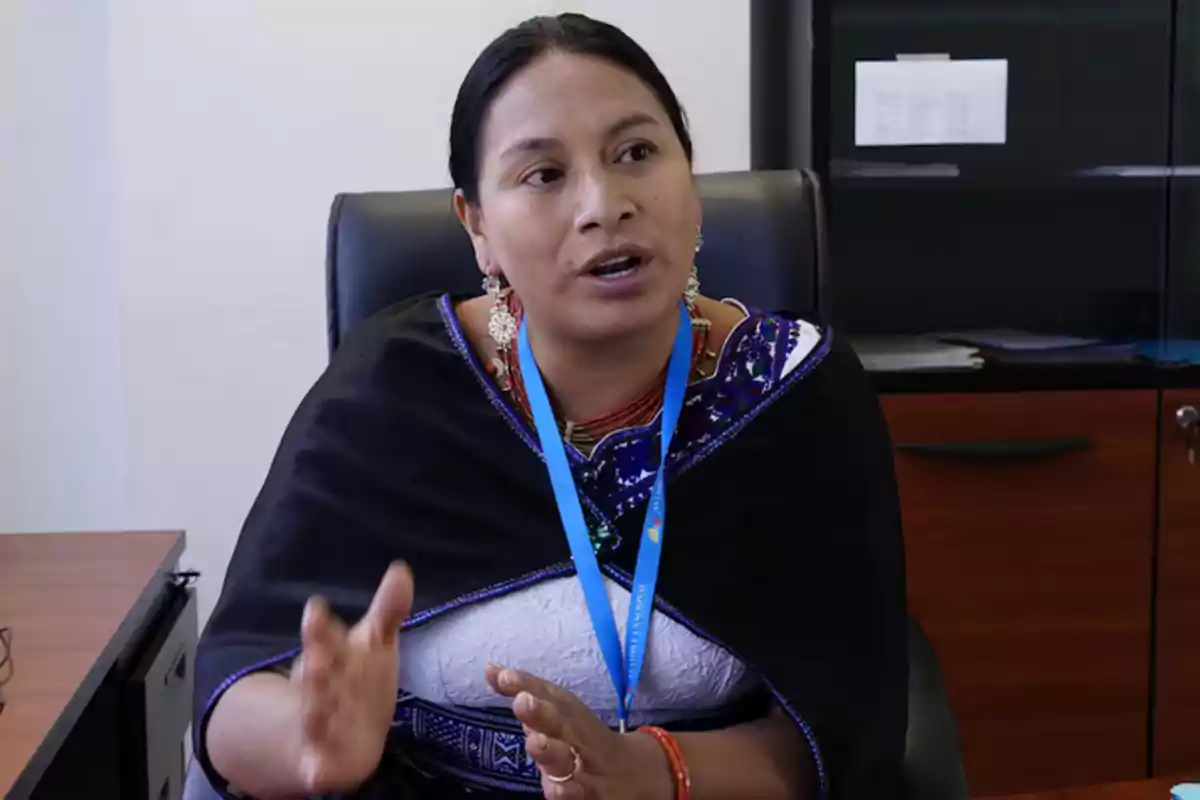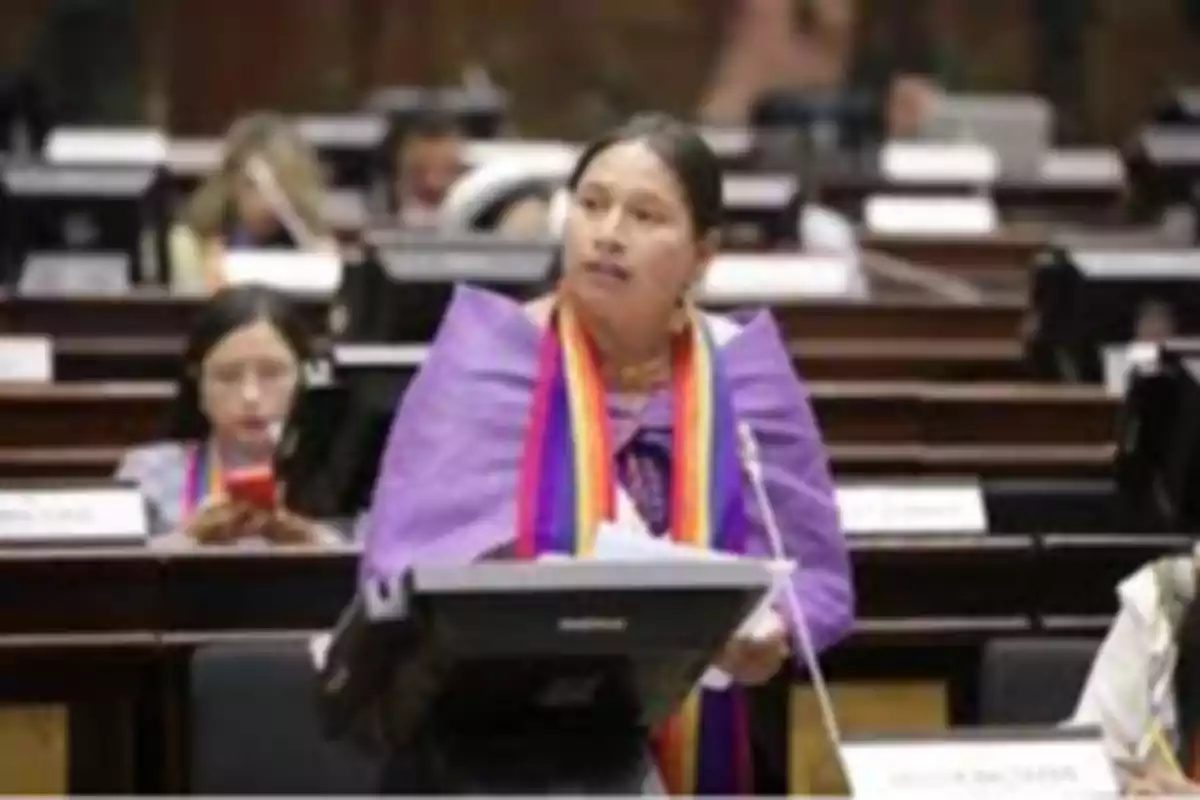
Assembly member Cecilia Baltazar assumed the presidency of the Education Commission
The Pachakutik legislator will lead one of the key areas of the Legislature until May 2027
The Commission on Education, Culture, Science, Technology, Innovation, and Ancestral Knowledge of the National Assembly already has a new chair. On the night of May 26, Assembly Member Cecilia Baltazar, representative of the Pachakutik movement, was elected as president of the legislative committee after receiving 79 affirmative votes and 69 abstentions.
The motion was presented by Luis Jácome, pro-government assembly member for Pichincha, in an attempt to solve the impasse that had prevented the appointment days earlier. On May 22, the commission was unable to define its authorities due to a lack of consensus, which had caused tensions in the legislative agenda for the education sector.
John Polanco, representative of the ADN bloc, was appointed as vice president, thus completing the leadership duo. This commission is one of the fifteen that make up the Legislature and its main responsibilities include addressing public policies related to education, science, and the preservation of ancestral knowledge.
The composition of the committee shows a diverse political distribution. Three members of the Citizen Revolution are participating, including Ana María Raffo; four from ADN, including Henry Bósquez; two legislators from Pachakutik; and one from the Social Christian Party. This plurality promises intense debates on key issues such as educational reform and the university budget.

From Pachakutik, there are expectations that Baltazar will promote an agenda focused on intercultural education and strengthening the public system. However, the presence of opposing blocs could make it difficult to reach quick agreements on structural reforms.
With this election, the Legislature begins to unblock its internal functioning after weeks of uncertainty. The formation of its commissions was an essential step to reactivate the processing of pending laws in the current parliamentary period.
Education remains a field where ideological differences carry weight, especially when addressing issues such as the funding model, teacher quality, and university autonomy. The role of this commission will be decisive in setting the course in one of the country's most sensitive areas.
The election of Cecilia Baltazar marks a key step for legislative operability, but it also opens a new stage of political negotiations that will test the ability to reach consensus among disparate blocs.
More posts: